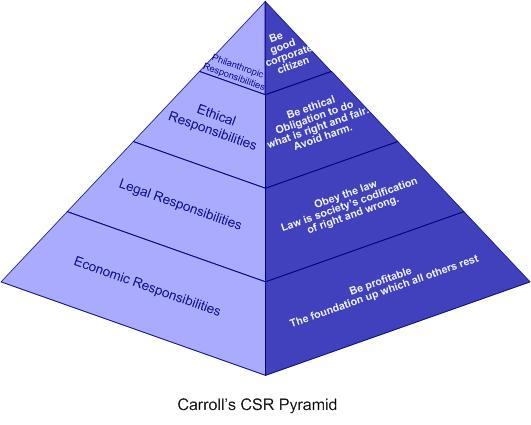| << Chapter < Page | Chapter >> Page > |
A broader concept is that CSR involves the commitment on the part of the company to adopt behavior that will result in the improvement of the quality of life of its stakeholders while contributing to the economic development of its business. To improve the welfare of its community, the company may take on broad environmental and social endeavors.
The World Business Council for Sustainable Development defines CSR as “the continuing commitment by business to behave ethically and contribute to economic development while improving the quality of life of the workforce and their families as well as of the local community and society at large” (wbcsd.org). This definition outlines the role of enterprises as active partners in the communities in which they operate, rather than the more traditional view of enterprise as a separate, self-regulating, profit-making entity.
CSR Positives and Negatives
Milton Friedman, in his book, Capitalism and Freedom , argues that:
There is one and only one social responsibility of business—to use its resources and engage in activities designed to increase its profits so long as it stays within the rules of the game, which is to say, engages in open and free competition without deception or fraud.
Stockholder wealth maximization commands that corporate management should aggressively seek to maximize stockholder returns by working to increase share prices and to continually grow the dividends paid to shareholders (Czinkota, 2005).
Conversely, according to Professor Archie B. Carroll:
Corporate social responsibility involves the conduct of a business so that it is economically profitable, law abiding, ethical and socially supportive. To be socially responsible then means that profitability and obedience to the law are foremost conditions when discussing the firm’s ethics and the extent to which it supports the society in which it exists with contributions of money, time and talent (Carroll,1983).
Carroll’s CSR model contains four categories of corporate responsibility organized from most to least important. According to Carroll, the “history of business suggests an early emphasis on the economic and then legal aspects and a later concern for the ethical and discretionary aspects” (Carroll, 1979). Economic obligations are, therefore, seen to be moderated by ethical responsibilities or social expectations and norms. Discretionary responsibilities go beyond ethical responsibilities and include philanthropic measures. In 1991, Carroll presented his CSR model as a pyramid, and suggested that although the components are not mutually exclusive, it “helps the manager to see that the different types of obligations are in constant tension with one another” (Carroll, 1979).

There is no indication that CSR (corporate wealth maximization) and profitability (stockholder wealth maximization) are mutually exclusive (Czinkota, 2005). Corporate wealth maximization suggests that companies consider and balance short-term goals against long-term societal goals of continued employment, community citizenship and public welfare needs (Czinkota, 2005). The successful multinational enterprises of the coming century will be those that find the unique balance between financial objectives and CSR.

Notification Switch
Would you like to follow the 'Business fundamentals' conversation and receive update notifications?